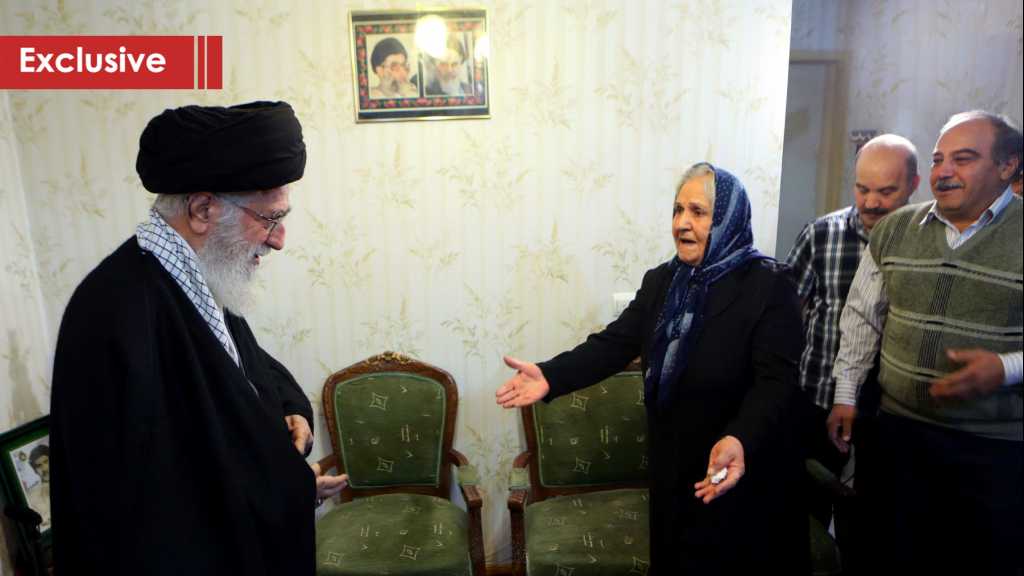
The Iran Action Group & Iranian Religious Minorities

Darko Lazar
In a July op-ed for USA Today, Washington’s top diplomat, Mike Pompeo, accused the government in Tehran of “religious intolerance” that, as the US Secretary of State claimed, extends to Christians, Jews, Sunnis and others.
Just a few weeks later, Pompeo would announce the formation of the so-called Iran Action Group (IAG) –a move widely interpreted as the latest American push for regime change in Iran.
Naturally, the newly-crowned head of the IAG, Brian Hook, also had plenty to say about the “repressive nature of the Iranian regime.”
On August 29, he echoed his boss’ rhetoric by claiming that the Americans are “aware of the suffering of religious minorities in Iran and we will speak up for them.”
Such a concerted PR assault by the Americans, coupled with fake news reports in western media, leave little in the way of suspense concerning what the IAG has in its sights.
Iran’s religious and national minorities
Earlier this week, Iran’s top military commander, Major General Mohammad Baqeri, warned that the Americans are using Kurdish terrorist formations in Iraq to launch attacks on Iranian soil.
The comments are yet another reminder of the fact that the US has not abandoned the ‘Kurdish card’ in its efforts to destabilize Iran, which is home to over 6 million Kurds.
But policy makers in Washington also appear to be developing a growing interest in Iran’s Christian communities.
Western propaganda tools are increasingly being utilized to run stories of rising concerns in the ‘international community’ about the supposed plight of Iranian Christians.
Both the press and US-financed rights campaigners rely largely on cases involving Iranian converts to make their claims about the alleged persecution of religious minorities.
However, observers note that those allegations are not originating from Iran’s larger Christian churches and communities – which include Armenians, Assyrians and Chaldeans – but rather, smaller neo-Protestant sects.
The most prominent of these is Jama'at-e Rabbani – the Iranian branch of the so-called Assemblies of God – which groups hundreds of organizations and operates in 212 countries.
In recent years, members of Jama'at-e Rabbani have been arrested and charged with espionage after Iranian security services discovered direct links between the sect and the US Central Intelligence Agency (CIA).
Similarly, a number of evangelical missionaries arriving from the US have also been accused of operating under the umbrella of American intelligence agencies while working to instill ‘Western values’ in the minds of locals.
These individuals, who represent a clear threat to Iranian national security, are often portrayed in the West as people “arrested for practicing their Christian faith”.
The reality on the ground, however, tells a somewhat different story.
Iran’s religious minorities are not only free to worship, but are also represented in parliament (the Christians have 9 delegates, the Jews have 3 and the Zoroastrians 2). Moreover, they enjoy all the protections and benefits that the state has to offer.
It is perhaps not surprising, then, that the Islamic Republic’s Christian lawmakers were among the first to respond to Washington’s ‘concerns’ for their wellbeing.
Yonathan Betkolia dismissed offers of American assistance, stating that the Assyrian and Chaldean communities, which he represents, are perfectly capable of defending their rights.
“If a country wants to be thriving, it should not trust America,” Betkolia said last month. “What is important is that we should preserve our national unity in the current situation.”
That sentiment is shared by the vast majority of Iran’s Christians, who know only too well how the Americans 'take care' of their brethren in Iraq and Syria.
So, with the Christians turning down their offer for protection, who else can the US “speak up for” in Iran?
The next logical alternative would be the Jews. But making the case of religious intolerance against this community is even harder than when Christians are concerned.
Even Western corporate media outlets acknowledge that the roughly 10,000 Jews living in Iran – a higher number than in any other Muslim country – are actively involved in social and political life.
The Jews have their own schools, hospitals, retirement homes, libraries, and eleven functioning synagogues in Tehran alone.
And during the last Western-fuelled conflict to grip Iran – the bloody Iran-Iraq war that unfolded between 1980 and 1988 – not a single synagogue was attacked or shut down.
These are just some of the reasons why experts are convinced that past failures of American foreign policy with respect to Iran are certain to linger.
Vigilance, unity and reliance on God
The Trump administration’s deal-making capabilities have clearly failed to yield results when it comes to Iran.
Despite considerable pressure from the Americans and their Israeli partners, Tehran has rejected broadening the nuclear accord and is refusing to negotiate over matters that concern its national security interests.
The IAG, symbolically created during the same week that Tehran marked 65 years since the CIA-orchestrated overthrow of the democratically-elected Iranian Premier Mohammad Mossadegh, is unlikely to change anything.
Last week, the leader of the Islamic Revolution in Iran, Imam Seyyed Ali Khamenei, applauded his country’s ability to withstand “the sabotage of America and its accomplices”.
But he also warned about “the enemy's desperate efforts to tempt and influence”.
“America sees their interests in civil wars and disastrous expansion of terrorist activities and regional conflicts,” he added. “The enemy is very active in various fields, which calls for vigilance, unity and reliance on God.”
Source: Al-Ahed News



